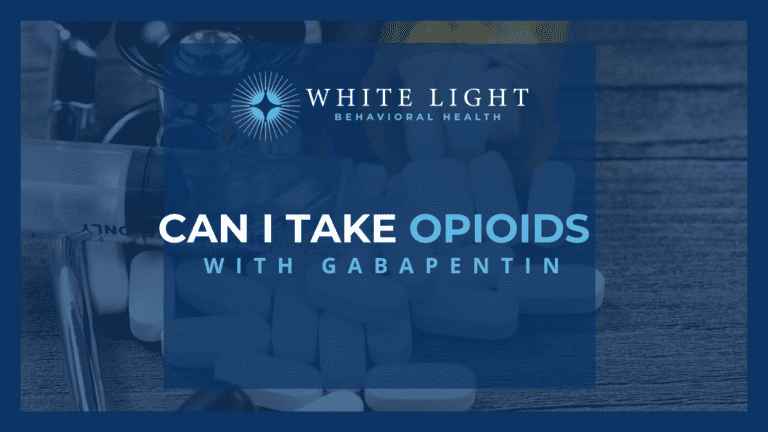Although Adderall proves very helpful in the treatment of conditions like ADHD and narcolepsy, this stimulant also has addictive qualities. Millions of Americans are prescribed the amphetamine and dextroamphetamine medication each year. Others buy it on the streets, where it is commonly sold for its euphoric high. Regardless of how you acquire your Adderall, mismanaged use can lead to physical dependence or even addiction.

In the “Misuse of Prescription Drugs Research Report” published by The National Institute of Drug Abuse in 2020, it was revealed that approximately 5.1 million Americans engaged in the misuse of Adderall and similar prescription stimulants over the previous year. This study highlights the particular susceptibility of young adults and adolescents to the misuse of these medications, with reported abuse rates of 1.8% among 8th graders, 1.6% among 10th graders, and 1.8% among 12th graders within the last year. Furthermore, the report sheds light on the broader issue of prescription stimulant addiction, noting that around 758,000 individuals aged 12 and older experienced addiction to these substances over the same timeframe.

Adderall is one of the most popular study drugs — said to increase energy and concentration toward the completion of important tasks. Along with Ritalin, it is widely abused by students, long-haul drivers, and people seeking to increase their work output.
People who misuse study drugs typically say they want specific results from doing so.
Reasons for Adderall abuse include:
- To have more energy and focus
- Wanting to meet a tight deadline or study through the night
- Desiring effects not related to studying, such as euphoria and energy
- Wanting to work faster or increase productivity
Adderall Detox And Treatment at White Light in Columbus, Ohio
At White Light, the approach to Adderall detox is tailored to each individual’s specific needs. Recognizing that each journey to recovery is unique. We offer personalized treatment plans that go beyond managing withdrawal symptoms and include residential rehab, outpatient services, case management and dual-diagnosis treatment options. White Light’s comprehensive care includes dual diagnosis treatment for those facing co-occurring mental health conditions, ensuring a holistic approach to recovery. Our Ohio-based center is equipped to support clients through the initial detox phase with medical supervision, psychological support, and a range of therapeutic modalities.
Who Needs Adderall Detox and Rehab?
- Our Adderall detox program is specifically designed to support a variety of individuals, including:
- People Who Can’t Stop Using Adderall: Those who have tried to quit on their own but find themselves unable to break free from the cycle of dependence.
- People Experiencing Withdrawal Symptoms: Individuals facing uncomfortable or painful withdrawal symptoms when not taking the drug.
- People Experiencing Negative Health Effects: Those who have noticed detrimental impacts on their physical or mental health due to Adderall use.
- People Using Adderall Without a Prescription: Individuals who have started using Adderall without medical supervision or beyond their prescribed dosage.
- People Experiencing Blackouts or Memory Issues: Those who suffer from memory lapses or blackouts as a result of their Adderall consumption.

White Light’s Rehab Programs for Lasting Adderall Recovery
Detox alone is never enough to treat addiction. Detox helps the body transition safely and comfortably from active drug dependence. But you also need psychological support and an array of therapies to prevent relapse. Together, detox and rehab are two major facets of a continuum of care. According to SAMHSA, a continuum of care meets individual needs as part of an ongoing process of change. This care provides the support you need to improve your health and wellness, live a self-directed life, and reach your full potential.
What Types Of Rehab Treatment Programs Are Available?
Types of rehab treatment programs for Adderall addiction include:
- Medical Detox
- Residential rehab
- Partial hospitalization (PHP)
- Intensive outpatient (IOP)
- Dual Diagnosis Treatment
Therapy for Adderall Recovery
- Psychotherapy
- Family therapy or couples counseling
- Group therapy
- Behavioral therapies, such as CBT or DBT
- Trauma therapy, such as EMDR
- Addiction education
- 12-step program
- Dual-diagnosis treatment
Understanding Adderall Withdrawal
Adderall withdrawal can manifest in a variety of symptoms, ranging from fatigue and depression to physical issues like sleep disturbances. The severity and duration of these symptoms can vary based on the duration of Adderall use and the dosage. Undertaking detox without professional support can be challenging and, in some cases, dangerous. White Light Behavioral Health provides a medically supervised environment where individuals can detox safely, supported by a team of healthcare professionals who understand the nuances of stimulant withdrawal.

Negative Effects of Adderall Misuse
- When misused, Adderall can cause negative side physical and mental health effects. Some of these effects are life-endangering.
- Habit-forming, leading to potential dependence and addiction
- Stroke
- Heart attack
- Sudden death
- Dangerous interactions with MAO inhibitors
- New or worsening psychosis
- Circulatory problems, including numbness and blood restriction in fingers or toes
- Aggression
- Depression or anxiety
- Sleep problems and fatigue
- Severe weight loss
- Migraines
- Breathing problems
Negative Health Effects
Health Conditions Made Worse by Adderall
- Glaucoma
- Hyperthyroidism
- Severe anxiety or agitation
- High blood pressure
- Heart disease or coronary artery disease
- Vascular disease or hardening of the arteries
- History of drug or alcohol addiction
- Motor tics or Tourette’s syndrome
- Epilepsy or seizures
- Abnormal EEG scans
- Liver or kidney disease
- Poor circulation in hands or feet
Adderall vs. Meth: Key Distinctions and Detox Consideration
Finding White Light Behavioral Health In Columbus, Ohio
Located in Columbus Ohio, White Light Behavioral Health is easily accessible for those seeking Adderall detox services. Our facility offers a serene and healing environment, conducive to recovery and growth.
Get the Help You Need for Adderall Addiction
Prescription stimulants like Adderall are just as addictive and life-damaging as illicit street drugs. If you are facing an Adderall substance use disorder, today is the right day to seek help for recovery. There is a multitude of highly experienced Adderall detox centers in Ohio, including White Light Behavioral Health in Columbus. Contact our team of treatment specialists today to help you overcome Adderall addiction.
Frequently Asked Questions About Adderall Withdrawal And Detox In Ohio
How do I deal with cravings for Adderall?
Our comprehensive therapy sessions, including Cognitive Behavioral Therapy (CBT), are designed to help you develop coping strategies for managing cravings and triggers effectively.
What if I relapse after detox?
Relapse can be part of the recovery journey. Our program emphasizes relapse prevention strategies and offers ongoing support to address challenges as they arise, helping you stay on track.
Is detox enough for recovery?
While detox is a crucial first step in overcoming Adderall dependence, it is typically not sufficient for long-term recovery. Comprehensive treatment including therapy, counseling, and support for mental health is essential. White Light offers a range of post-detox treatment options that include the full continuum of care from detox, residential rehab, partial hospitalizaton and intensive outpatient treatment to support ongoing recovery.
Are there any medications that can help with Adderall withdrawal symptoms?
Yes, our program may utilize certain medications to alleviate withdrawal symptoms, always under strict medical supervision to ensure your safety and comfort.
What if I've been using Adderall to manage ADHD?
We understand the complexity of using Adderall for ADHD. Our medical team will work with you to explore alternative, effective treatments for managing your ADHD symptoms without the risk of dependency.



